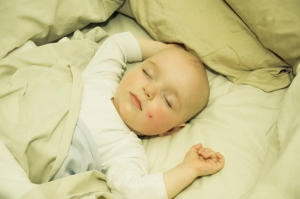
At the beginning of last week the South’s Oldest Daily Newspaper, the Post and Courier, brought a major safety concern to the attention of your Charleston lawyers at Howell Law. The concern is the controversial issue of “bed-sharing”, particularly when parents share a bed with their infant children. There are documented horror stories of good intentioned parents allowing infants into their bed and accidentally rolling over on top of them, suffocating the young child, and leading to an unfortunate wrongful child death. However, some advocates say the practice of bed-sharing can strengthen the bond between parent and child, facilitate breast-feeding, and offers a solution to sleepless nights.
Solid state statistics on how this practice has affected South Carolina families are not easy to come by, as the South Carolina Department of Health and Environmental Control doesn’t specifically track infant deaths due to infants sharing a bed and sleeping with parents. But county coroners do indicate when an infant’s cause of death is due to bed-sharing, using the indicator “co-sleeping.” According to the Charleston County Coroner’s Office, at least three infants died while sharing a bed with a parent.
Also, the Charleston County Coroner’s Office, having tracked the number of bed-sharing incidents since the mid-1990s, has taken the initiative to educate area parents on the issue. The office attends local baby fairs and warns that the practice is especially dangerous to infants younger than three months because of their inability to lift their heads. The Charleston County Chief Deputy Coroner has even written a book on the issue for other coroners, feeling there is great need to educate officials and the public alike to help prevent child injury and death.
In recent years there has been a trend promoting bed-sharing as a means of developing a strong baby and parent bond, but the often heard rhetorical question arises: Is the risk worth the benefit? Mothers who breast-feed say that bed-sharing is a matter of convenience. But because of the exhaustion faced by new moms and dads, along with the inherent risks, pediatricians tell parents that bed-sharing is not a good idea. Extremely tired and worn out parents may not be able to wake up or sense when their baby is trouble. Also, serious accidents and injuries can occur without the intention of bed-sharing. In the Post and Courier’s article, the Charleston County Chief Deputy Coroner recounts one of the saddest cases she has had to investigate in which a family fell asleep in their living room with the baby on the couch. Sadly, the baby died. National attention to bed-sharing is on the rise. The Centers for Disease Control and Prevention are calling for better data collection of when these incidents of wrongful death occur as a means to better understand the issue. Additionally, back in October 2011, the American Academy of Pediatrics released a policy advising against the practice of bed-sharing and revealed that when parents sleep in the same room as a baby, but not in the same bed, the risk of Sudden Infant Death Syndrome (SIDS) can be cut by as much as 50 percent. A remarkable figure.
In addition to suggesting the bed-sharing alternative of placing an infant’s crib near the parent’s bed, the American Academy of Pediatrics offers the following safety guidelines: If a new mother decides to have her infant in her bed to breast-feed, care should be taken to lie in a nonprone sleep position, avoid soft surfaces and loose covers, avoid entrapping the baby by moving the bed away from the wall and other furniture, and generally avoiding beds that present the risk of entrapment. Adults other than the infant’s parents, as well as other children or siblings, should avoid bed-sharing with an infant. Also, parents who choose to share a bed with their child should not smoke or use substances such as alcohol or drugs that may inhibit their ability to wake up should the baby be in trouble.
Like any issue, there are advocates and arguments for both sides. But your lawyers in Charleston at Howell Law urge new moms and dads to listen to their pediatrician and establish a safe sleeping environment for their infant.